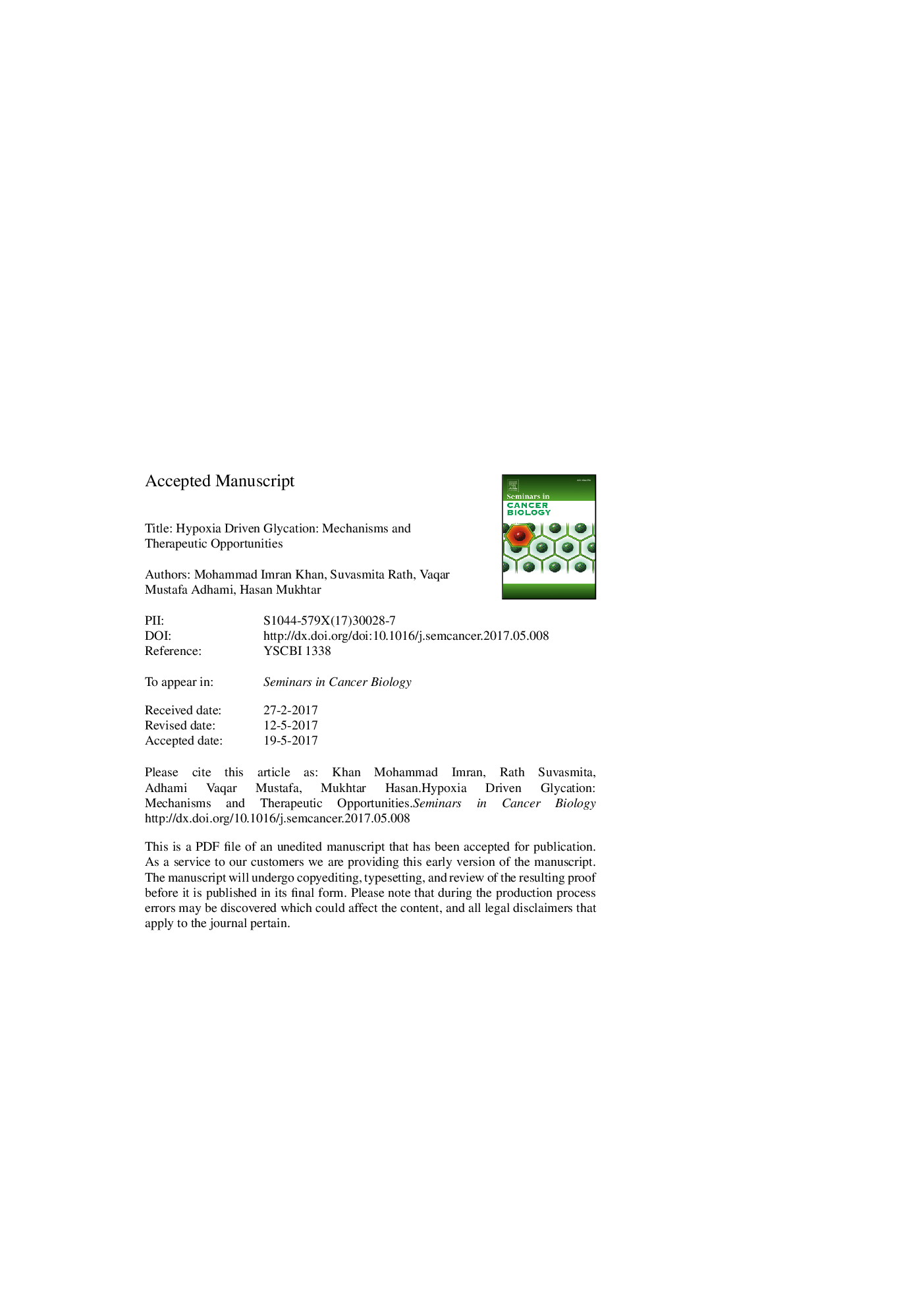| Article ID | Journal | Published Year | Pages | File Type |
|---|---|---|---|---|
| 8361773 | Seminars in Cancer Biology | 2018 | 39 Pages |
Abstract
Tumor masses are deprived of oxygen and characterized by enhanced glucose uptake followed by glycolysis. Elevated glucose levels induce non-enzymatic glycosylation or glycation of proteins which leads to accumulation of advanced glycation end products (AGE). These AGE molecules bind to their respective receptors called the receptor for advanced glycation end products (RAGE) and initiate several aberrant signaling pathways leading to onset of diseases such as diabetes, Alzheimer's, atherosclerosis, heart failure and cancer. The role of AGE in cancer progression is being extensively studied in recent years. As cancer cells are hypoxic in nature and adapted to glycolysis, which induces glycation, its effects need to be understood in greater detail. Since AGE-RAGE signaling is involved in cancer progression, inhibition of AGE-RAGE interaction could be a potential therapeutic target. The purpose of this review is to highlight the role of AGE-RAGE interaction in hypoxic cancer cells.
Related Topics
Life Sciences
Biochemistry, Genetics and Molecular Biology
Biochemistry
Authors
Mohammad Imran Khan, Suvasmita Rath, Vaqar Mustafa Adhami, Hasan Mukhtar,
